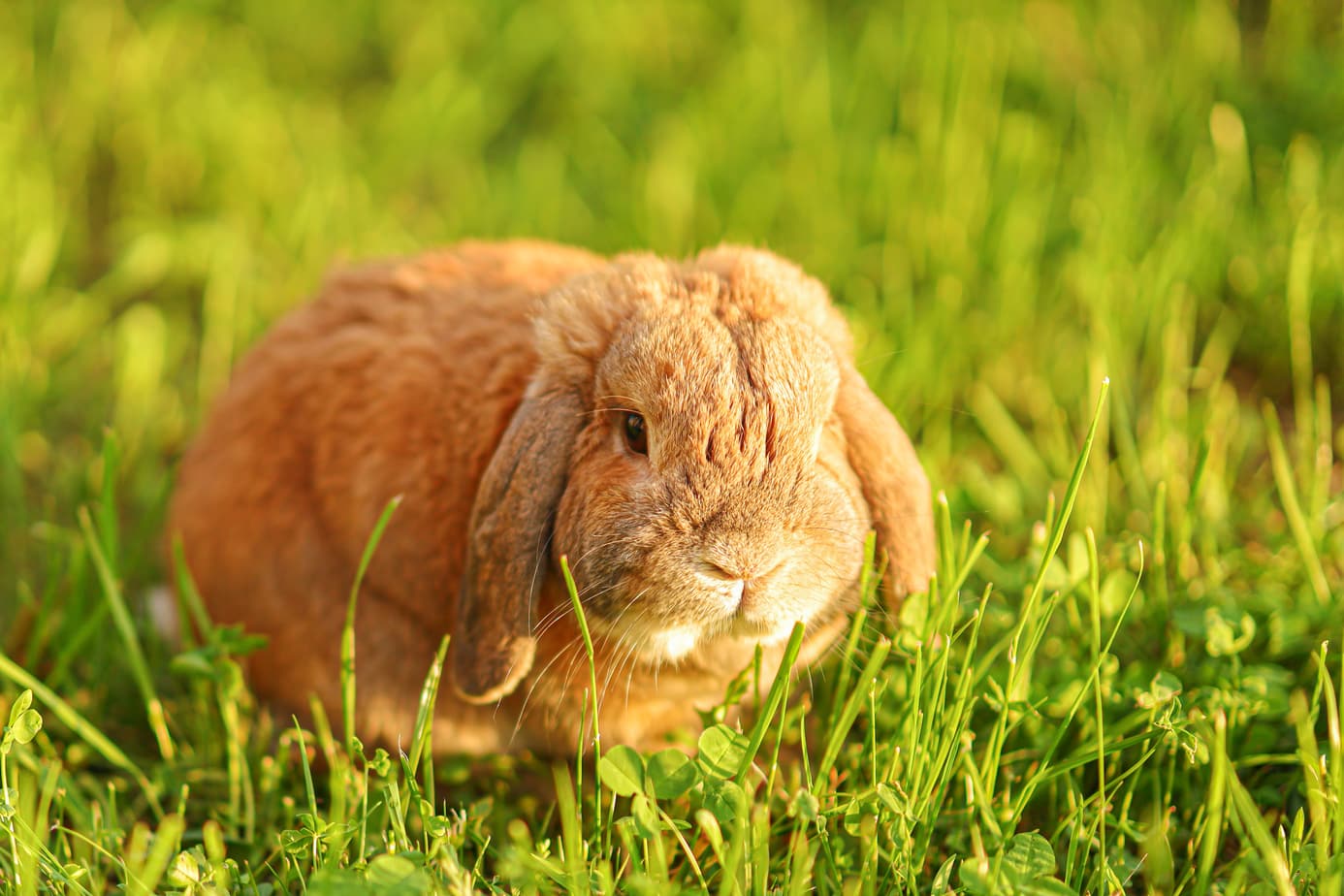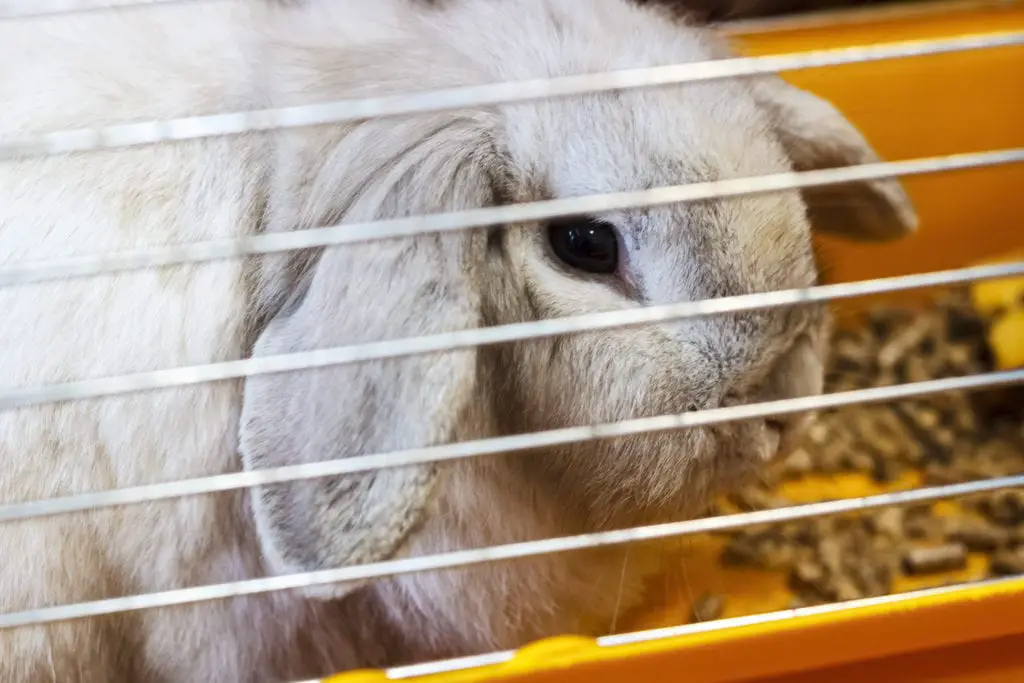
If your male rabbit has been acting up, it might be time to consider neutering him. Of course, concern over how the procedure will affect his personality is common and natural for rabbit owners.
Once your rabbit has been neutered, his personality will shift to a calmer state over the next few weeks after the procedure. Any problematic behaviors your rabbit might have exhibited before neutering are likely to lessen or disappear completely.
Listed below are a few common character changes to look out for once your rabbit has been neutered.
Decreased Courtship Behavior
Once bucks reach maturity at ten to twelve weeks and are not immediately neutered, they will reflect the traits that come with it. Spraying urine, mounting other rabbits, owners, or pets, and nipping are all ways that bucks show they’re ready to breed.
These habits can turn into a cleaning problem around your household, and, more seriously, can cause stress or unwanted pregnancies if you have rabbits of the opposite sex.
TIP: To learn more about rabbit spraying and how it’s affected by neutering, see my article all about neutered rabbits and spraying here.
Neutering your rabbit will allow his hormones to die down, and as a result, so will his desire to mate and assert dominance. The time it may take for his behavior to adjust may vary; spraying and mounting could take a few weeks or months to disappear, so don’t be disheartened when the effects aren’t immediate.
Without courtship behavior to get in the way, your rabbit will have an easier time with his owners, his environment, and other rabbits. Some owners are even fearful that their rabbits might mate through a cage with a neighboring rabbit. See my article all about rabbits mating through cages here for more information on this behavior.
Older rabbits can also be neutered with the same positive effects. However, you should keep him separated from does for four to six weeks after the procedure. This ensures that any residual courtship behavior will die off, as will any remaining sperm left in the rabbit’s system.
Better Litter Box Etiquette

Because courtship behaviors can lead to spraying, you’ll probably wind up with a rabbit who doesn’t care about where he goes to the bathroom.
Neutering males make them easier to litter train and stay litter trained. Without the distraction of mating on their minds, they will be less likely to mark their territory on their surroundings, other rabbits, or even on you, saving you the dilemma of cleaning up after them.
Keep in mind that younger rabbits are harder to train than older rabbits, so their age might contribute to how well they use the litter box before and after neutering. Be sure that your rabbit actually likes spending time in their litter box, too, and fill it with safe litter like wood pellets or sometimes newspaper.
Avoid using clumping or clay litter as you’d use for cats, which are bad for your rabbit’s health. Certain newspapers used as litter or bedding can sometimes pose a risk. Find out more about using newspaper in your rabbit’s cage here.
If you want to entice them further into using the litter box, keep fresh hay on top of the litter and place treats or toys in it.
Also, don’t be worried over a few stray droppings that find their way out of the litter box. “Hop and drop” happens, so as long as your rabbit doesn’t make frequent messes once he’s been neutered, he should be fine.
Less Aggression
Bucks become sexually frustrated during the breeding season if they don’t have someone to mate with. Their higher testosterone levels also contribute to difficult behavior. Because of this, they can become aggressive toward other rabbits or their owner.
There are many reasons your rabbit might fight with another rabbit. To find out the common reasons rabbits fight and how to stop them once they start, see my article Five Reasons Pet Rabbits Fight and How to Stop Them here.
You may also see characteristics in your rabbit like grunting, growling, and lunging, which can result in issues with his own safety and the safety of other pets, yourself, or your family members.
After neutering, your rabbit’s testosterone levels fall, and his aggression levels will dramatically reduce or disappear. This can help you have a better relationship with him, and if he has bonded with a female companion, it will also keep her happier.
The lower testosterone levels will affect your rabbit’s eating habits and body weight along with his personality. He’ll likely eat less but gain more weight, so adjust his food routine accordingly to avoid any dietary problems that may make him unhappy.
If your rabbit still shows signs of aggression in the following months after the procedure, consider other factors that may cause that kind of behavior, such as his environment or the size of his pen.
Likely To Bond Better

Uncastrated rabbits may find it difficult to safely bond with a potential companion due to their potential aggression and sexual behavior. But because rabbits are social animals and naturally bond with others, keeping them from bonding can also create more problems in their personality.
Neutering your rabbit will allow it to securely bond with another and avoid any possible problems like consistent fighting and mating.
If your buck has already bonded with a rabbit, make sure that they’re separated to give the buck enough time to heal from his procedure and decrease the chances of mating behavior.
If you’ve recently neutered your rabbit and want to introduce him to another in hopes of bonding them, be sure to take the process slowly. Give them time to settle. One or both rabbits may display courtship behavior even if they are neutered or spayed, so keep that in mind as they familiarize themselves with each other, but it shouldn’t linger too long afterward.
Unusual Change In Character
As nice as it would be to see how your rabbit’s personality will change after he’s been neutered, it’s not possible until the procedure has already been done. While your rabbit will likely have better behaviors overall, there is a chance that his personality can veer away from the rabbit you once knew.
A castrated buck may be:
- Timider
- Lethargic
- Wary of human contact
- Anxious
Neutering your rabbit as early as possible can mitigate these unwanted traits. They’ll have an easier time adjusting to different hormone levels than older bucks that get castrated later in their lives.
Despite these potential effects, neutering your rabbit has high success rates, as well as high satisfaction rates for owners who’ve had to deal with the difficulties that come with an unneutered buck. If you have further concerns or questions about the operation, consult your veterinarian.
